A survey of the diversity and inclusion policies and practices of the UK’s post-production community
The UK’s post-production sector employs tens of thousands of people in a wide range of technical and creative roles, but how diverse is the workforce?
In light of the Black Lives Matter campaign raising awareness of the challenges faced by the BAME community, Broadcast asked a range of post-production facilities about their policies and procedures for encouraging gender and ethnic diversity, as well as their ability to accommodate disabled employees.
Technicolor Post UK
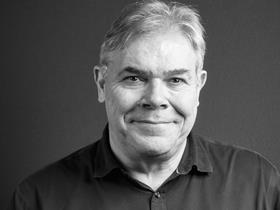
John Fleming, vice president, post production and digital services, Technicolor
What are you doing to help ensure you have a diverse workforce?
We are committed to enabling every employee to feel safe, respected and have a sense of belonging; and to building diverse teams that reflect their local communities. We have policies and initiatives in place and have worked for many years ensuring equal opportunities for staff. As a result, we are seeing greater diversity in our senior team. However, we know that more action is required. Earlier this year, we started a new round of unconscious bias training for managers to keep diversity and inclusion front of mind. We recognise that we need to be better informed about our environments and what we can do to listen and learn from our employees. At the moment we are focused on conversations within our teams to better understand and be able to create measurable and lasting change.
Why is it important to have a diverse gender and ethnic balance?
At Technicolor, we believe our creativity and innovation needs diversity. Our industry brings together an eclectic mix of individuals from around the globe, who share a common goal of creating stories that entertain us, stories that inspire us, and stories that help elevate new voices and talents. Creativity needs diversity, storytelling needs diversity. It is critical that our entire industry do a better job of creating a more diverse workforce.
Has the Black Lives Matter campaign helped accelerate your efforts?
Black Lives Matter has highlighted the need for us to take a more proactive position on diversity, equality and inclusion. As a business, we actively work to provide inclusive environments, however that could also be considered as a neutral position, which in some ways maintains or propagates the status quo.
We don’t have all of the answers, but we are working through it on a daily basis and have made a commitment to our employees that we will do more to create a diverse workforce and further inclusive environments.
The status quo can be improved through community outreach. We need to more regularly reach out to young people in underrepresented groups to raise awareness as to the opportunities that exist within our industry. Early awareness and education around the opportunities in our industry is critical to creating a future with a more diverse workforce, and more inclusive storytelling.
Framestore
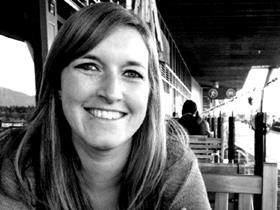
Anne-Marie Gough, head of HR, UK, Framestore
What are you doing to help ensure you have a diverse workforce?
We employ a positive recruitment strategy where shortlists for any roles contain a minimum of one female candidate.
We’re very proud of our strong senior female leadership presence, with 54% of the direct reports to our chief executive being female. Our most recent group of apprentices was 60% female.
Meanwhile, our annual summer internship programme, Launchpad, which runs for two months, encourages applications from under-represented students. Elsewhere, we try to target specific groups in our work experience programme, which runs four times a year in partnership with Next Gen.
For Launchpad, we aim to have 50% male and 50% female students; 25% BAME students; and 25% students from impoverished backgrounds.
Added to this, last year, we delivered an immersive careers experience for 80 BAME and disadvantaged young women.
We’re also a very active member of industry-wide diversity group, Access VFX, which encourages entry to the industry from under-represented groups who might not have considered VFX as a career option.
Our HR team delivers disability awareness training for our front-facing teams such as reception and recruitment, and we actively encourage flexible working across the business for any employees who need additional flexibility.
Do you have a specific diversity and inclusion policy?
Yes we do – our Fair Treatment at Work policy. We give all employees regular reminders of all our policies, where they can find them and how they can take advantage of them.
Why is it important to have a diverse gender and ethnic balance?
Diversity inspires creativity and innovation in the work we do, and it also helps us attract and retain the best talent. We provide opportunities for all our employees for personal and professional development, helping us attract and retain the best talent.
Do you run any mentoring and/or education schemes around diversity?
We have management training workshops, the aim of which is to build awareness of unconscious biases and make sure we’re always operating a non-discriminatory approach.
We also run several workshops for our apprentices, runners and interns, which cover unconscious bias training, as well as others for management and supervisors on how to most effectively manage diverse teams.
Has the Black Lives Matter campaign helped accelerate your efforts?
We’ve always been working towards creating a diverse workforce, but the Black Lives Matter campaign’s recent activity has certainly solidified the need for faster action. We’re in the process of building a new internal resource for employees to use to further educate themselves on the topic.
We’ve also held several town hall discussions with our CEO discussing recent events and issues, and invited employees to ask questions and propose ideas and suggestions for how we as a company can do better.
We’re in the process of forming a global diversity working group to tackle this important issue. We will also be running further leadership training focused on managing unconscious bias globally as well as training on bullying and harassment and equal opportunities to reinforce our existing policies on these areas.
Run VT
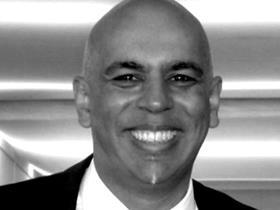
Balvinder Singh Sanghera, owner, Run VT
What are you doing to help ensure you have a diverse workforce?
Throughout our 25 years, Run VT has had a diverse workforce. We do not discriminate when it comes to age, sex, colour or disability. We currently have a workforce of 17-35% who are diverse, 29% are women and 41% aged 40 and over.
Do you have a specific diversity and inclusion policy?
We don’t have a policy, and neither do we need one. When you are the owner of a business, and of colour, you have a good understanding of the difficulties faced growing up and experienced prejudices throughout the industry.
Why is it important to have a diverse gender and ethnic balance?
It’s important to have a diverse workforce, as it is a true representation of the country that we live in. A good mix is a healthy mix. I don’t believe one should employ someone just because of their diversity. What is important is that everyone is given an equal opportunity to apply for roles that are advertised.
Do you run any mentoring and/or education schemes around diversity?
We don’t have any internal mentoring. The fact that Run VT is owned by a member of the BAME community gives us an edge. A lot of the values that I stand for are based around my Indian heritage.
Has the Black Lives Matter campaign helped accelerate your efforts?
For us, it is business as usual. We feel we are far ahead of our competitors in recognising that Black Lives Matter. I have always remained true to this throughout the 25 years and will continue to not discriminate.
Is there anything else you’d like to add?
BAME-owned production companies have benefited for many years, but when it comes to post-production, this has always been ignored. Until the likes of Run VT get some positive press, we will always be a minority in the industry.
The Finish Line

Zeb Chadfield, founder, The Finish Line
What are you doing to help ensure you have a diverse workforce?
We have always worked to have a diverse gender-neutral team. Because we have a mostly senior staff with very few entry-level positions, our main focus has been making sure that new entrants can see themselves in senior positions in the company.
Why is it important to have a diverse gender and ethnic balance?
I like to think about diversity as a way to make the company more capable. The more different backgrounds and experiences we can have at the company, the more different solutions to challenges we will come up with.
We want all people from all walks of life to come into post-production to help with creative thinking and to push the industry forward, but also to enable everyone to show the community they are from that working in this industry is achievable.
We also make sure that all the new people coming in know that they are safe and are able to share their thoughts and experiences, so we can all continue to learn from each other and improve our world together.
Do you run any mentoring and/or education schemes around diversity?
I speak at my old high school to talk about the industry and make sure kids with various challenges like myself are aware that getting into this industry doesn’t require anything more than passion and keenness.
Pre-Covid, I also started doing something similar with schools near our office so we can look at having a regular work experience agreement in place to help expose more people to the industry.
Has the Black Lives Matter campaign helped accelerate your efforts?
Hiring people from a diverse background is something I’ve always felt strongly about, so I wouldn’t say it’s accelerated it, but it’s been a great reminder that our impact on the community around us is an important aspect of running a company.
The Farm Group
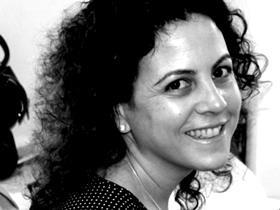
Charlotte Layton, group commercial director, The Farm Group
What are you doing to help ensure you have a diverse workforce?
The Farm has worked for many years with a number of organisations to increase diversity within our family – Mama Youth, Sara Putt Associates, Women in Film & TV, Animated Women UK and Access VFX to name a few.
Through these relationships we have welcomed a number of Farmers into our fold, across both technical and production areas.
Why is it important to have a diverse gender and ethnic balance?
We are a creative industry with a responsibility to inform and influence as well as entertain. Ensuring our industry voice is diverse is essential to represent and reflect a true cultural balance to our audiences.
Has the Black Lives Matter campaign helped accelerate your efforts?
Absolutely, yes. In a series of recent town hall meetings, we explained to our Farmers that we want to make an active, not passive, difference within our industry. By which we mean measurable action as opposed to empty words.
As a result, we now have a Time for Change steering group made up of Farm volunteers from across all regions and departments. Together we will set ourselves a series of short-, mid- and long-term goals with the hope our client and industry partners will join with us. Making change locally and influencing those around us can be done.
Is there anything else you’d like to add?
We must get better at informing a wider cross section of our society of the opportunities and roles available within our industry. Accessing the younger generation at an earlier point in their school career can help achieve this. There are so many fantastic, yet probably unknown, career choices within our industry, suited to a plethora of personalities, skills and interests.
We need to be in schools as credible role models sharing the wider gamut of roles they could explore, not just the obvious camera person or presenter.
Cinesite
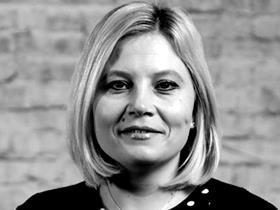
Sashka Jankovska, group head of HR and operations, Cinesite
What are you doing to help ensure you have a diverse workforce?
We strive to build the world we want to see within our own studios and industry at large. We’re not all the same, and that’s our greatest strength. We draw on the differences in who we are, what we’ve experienced, and how we think, because to create images and stories that serve everyone, we believe in including everyone.
Cinesite fosters and encourages an inclusive approach by everyone who works with us and we’re constantly reviewing our practises and policies to make sure we’re doing the best we can. We respect the work-life balance (not just family life but work-personal life) and are working to offer more flexibility to employees.
Cinesite London has gender parity amongst its head of departments, and we’re a member of Access VFX and a supporter of Women In Animation.
Furthermore, we’re developing and implementing policies and practices that are more inclusive of our LGTBQIA2S+ community.
For anyone with a disability, Cinesite makes reasonable adjustments across our studios and the individual’s role that will remove or minimise any disadvantage to them.
Added to this, with one in seven people (more than 15% of people in the UK) being neurodivergent, Cinesite makes reasonable adjustments across our studios and the individual’s role that will remove or minimise any disadvantage to them.
Cinesite employees are given a safe place to practice their religious beliefs and they are protected from discrimination at all stages of employment including recruitment, workplace terms and conditions and dismissal.
Do you have a specific diversity and inclusion policy?
Cinesite has an equal opportunities policy that sets out our approach to equal opportunities and establishes guidelines for dealing with workplace discrimination. We take a reading of our success by the number of employees returning to work for us, exit interviews and regular feedback and dialogue between our management and workforce.
Why is it important to have a diverse gender and ethnic balance?
Tara Kemes, general manager for Cinesite Vancouver, said: “For us, it’s pretty simple. When people feel they can be their true selves, they are more confident, more creative and more productive. A diverse talent group generally brings a broader range of ideas and approaches to solving problems; when we’re challenged to seek to understand each other it makes us better as a team.”
Do you run any mentoring and/or education schemes around diversity?
Cinesite has various internal educational and training schemes across the studios; our management training has diversity and inclusion modules; and we also offer queer competency training and respectful workplace training.
Has the Black Lives Matter campaign helped accelerate your efforts?
Cinesite has definitely been thinking hard about how we can help dismantle the systemic racial barriers that have blocked social and economic progress for black people. We knew the first step toward change was to speak up, like so many other companies did. During the past few weeks, the senior leadership team has been doing a lot more listening than talking.
We’re now actively discussing changes to policies and contracts, which will enable us to meaningfully push the needle towards a more diverse and inclusive culture.
The struggle for equality exists in many forms around the world – from religious freedom to gender equality, indigenous people’s rights, LGBTQ+ rights and other racial and ethnic discrimination. We’re committed to seeing an improvement amongst our global workforce across the whole diversity and inclusion spectrum.
Being different together will ultimately make us stronger as a studio collective.
Access:VFX

Amy Smith, non-executive director, Access:VFX
What are you doing to help ensure you have a diverse workforce?
We are a non-profit organisation made up of more than 40 members including visual effects studios, trade bodies, animation studios, educational partners and other third party partners. We have a board that is a 50/50 gender split and an 18% BAME representation.
In light of recent events, we have opened up two additional places on the board and have specifically encouraged applications from BAME applicants in order to provide better balance.
Do you have a specific diversity and inclusion policy?
Our remit is actively pursuing and encouraging inclusion, diversity, awareness and opportunity – under the four pillars of inspiration, education, mentoring and recruitment.
Why is it important to have a diverse gender and ethnic balance?
It would be impossible to call ourselves truly creative and innovative businesses unless we had diversity of background, experience, voice, culture and ideas. A diverse workforce that represents the communities in which we work allows us to remain competitive, innovative and inclusive.
Do you run any mentoring and/or education schemes around diversity?
We have an active mentor programme with more than 400 mentees and mentors paired up. Our mentees are of all ages from 14 upwards and our mentors are located all over the globe and represent all levels and occupations within our industry.
Has the Black Lives Matter campaign helped accelerate your efforts?
The Black Lives Matter campaign has driven us to look at our board representation and has also spurred us on to creating an industry-wide network for our BAME colleagues and peers.
In 2019, we formed QVFX, which is the first industry-wide LGBTQIA+ network within the industry. We hope this new initiative will do the same and provide a safe space for our colleagues to feel valued, heard and included.
Is there anything else you’d like to add?
Please take a look at the UK Screen Alliance Diversity Inclusion Report at https://www.ukscreenalliance.co.uk/news/uk-screen-alliance-releases-ground-breaking-industry-diversity-inclusion-report/




















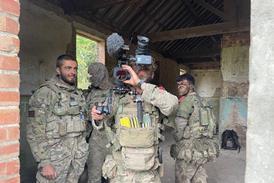

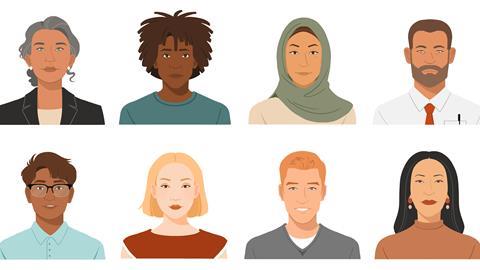






No comments yet